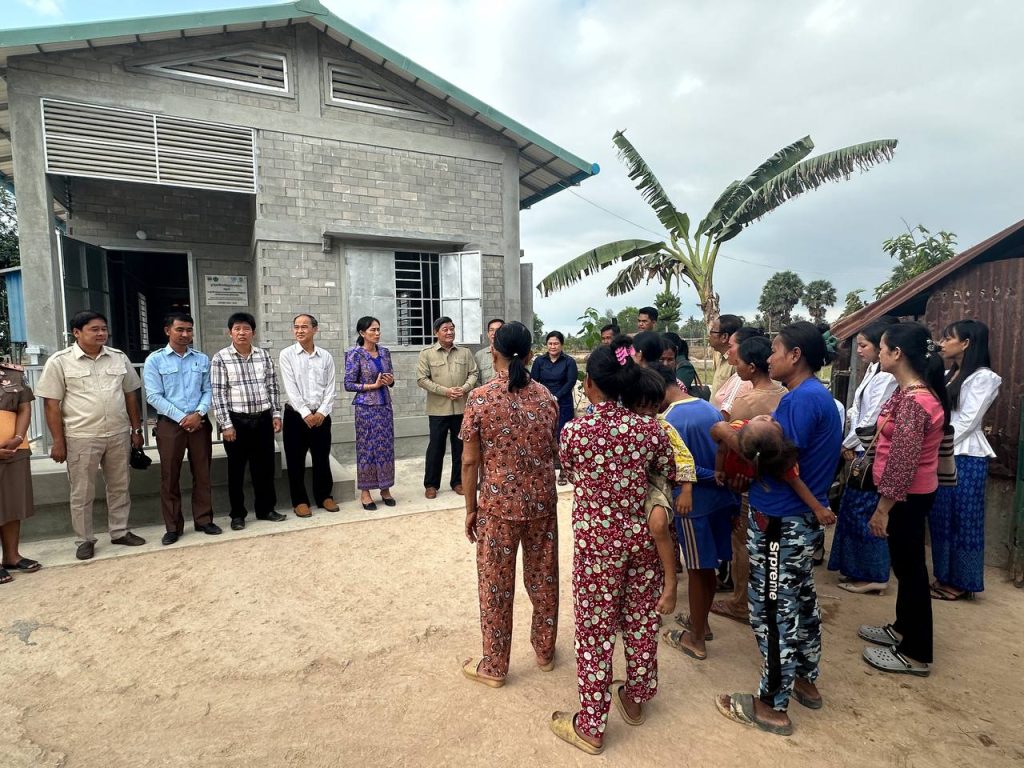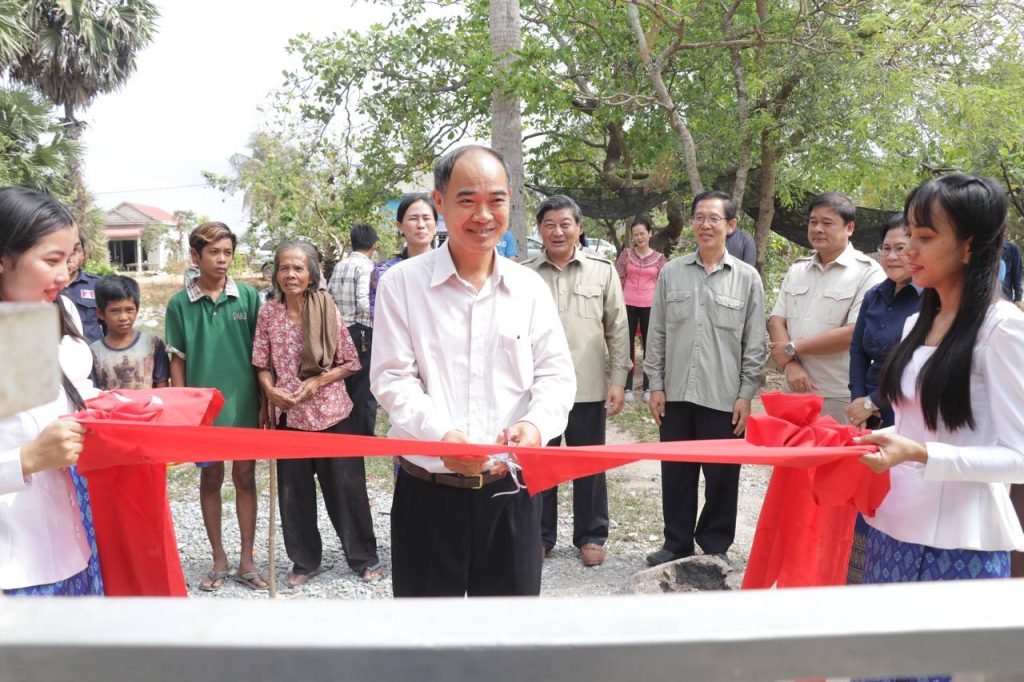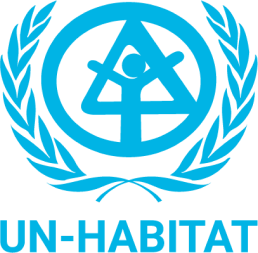3 April 2024, Kep and Preah Sihanouk Provinces, Cambodia – Eight demo resilient houses were handed over to the selected vulnerable households based on ID poor criteria and land tenure. It is for this reason that up to 80 percent of housing is damaged by strong winds annually in some communes and women are more likely to be injured or affected by damaged houses due to poor construction quality and materials.
These demo resilient houses were constructed under the project “Climate Change Adaptation through Small-Scale and Protective Infrastructure Interventions in Coastal Settlements of Cambodia (CCA4CS)” funded by the Adaptation Fund, implemented by UN-Habitat’s Cambodia, and executed by the Ministry of Environment since August 2021.

The handover ceremony was presided over by His Excellency Pheav Sovuthy, Under Secretary of State of the Ministry of Environment, with participation from Mr. Vanna Sok, Habitat Programme Manager of the UN-Habitat Cambodia, Mrs. Tit Sokha, Deputy Governor of Kep Province, Mr. Prak Visal, Director of Public Administration of Preah Sihanouk Province, and local authorities and communities.
On behalf of His Excellency Eang Sophallet, Minister of Environment, His Excellency Pheav Sovuthy emphasized that climate change has occurred more frequently and is causing impacts such as strong winds, storms, increasing temperature, variability of rainwater and saltwater instruction into agricultural land, etc. The construction of demo resilient houses to climate change is unique in a way that can withstand strong winds, increasing temperatures, and good ventilation. His Excellency suggested that beneficiaries of these resilient houses pay attention to the maintenance to ensure to long-lasting of these resilient houses. In addition, beneficiaries should maintain hygiene, and plant some trees around the house to respond to priority actions stated in the Circular Strategy on Environment.
One of the beneficiaries also expressed her appreciation to the Ministry of Environment and UN-Habitat Cambodia for providing a house that is resilient to the strong winds her family normally suffer from.

Mr. Vanna Sok, Habitat Programme Manager of UN-Habitat, also shared that “the project intended to facilitate the construction of safe and resilient housing and provide training with community members’ participation as UN-Habitat mainstreams the People’s Process. I hope that local people who participated in the training and construction activities of demo resilient house constructions will support other vulnerable households to replicate resilient houses to enhance climate change adaptation in the vulnerable communes”.


